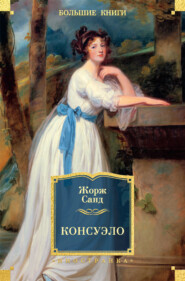По всем вопросам обращайтесь на: info@litportal.ru
(©) 2003-2025.
✖
The George Sand-Gustave Flaubert Letters
Настройки чтения
Размер шрифта
Высота строк
Поля
G. Sand
CXIV. TO GUSTAVE FLAUBERT 30 April, 1869
No way of going out today. This slavery to one's profession is horrid, isn't it? Between now and Friday I shall write to you so that we can again settle on a day. I embrace you, my old beloved troubadour.
G. Sand
CXV. TO GUSTAVE FLAUBERT 3 May, 1869
They are encroaching upon my time more and more. All my days are full until and including next Sunday. – Tell me quickly if you want me Monday, a week from today – or if it is another day. Let us fix it for it is a fact that I don't really know whom to listen to.
Your troubadour who does not want THIS STATE OF AFFAIRS to continue!
G. Sand
Monday.
CXVI. TO GUSTAVE FLAUBERT
Paris, 4 May, 1869
On Monday then, and if I have an hour free I shall try to embrace my troubadour before that. But don't disturb yourself, I know very well that one does nothing here that one would like to do. Anyway, on Monday between three and four, clear out your windpipe so as to read me a part before dinner.
G. Sand
Tues. evening.
CXVII. TO GUSTAVE FLAUBERT
Sunday, 9 May, 1869
Tomorrow, your reverence, I shall go to dine at your house. I shall be at home every day at five o'clock, but you might meet some guys whom you dislike. You would much better come to Magny's where you would find me alone, or with Plauchut, or with friends who are also yours.
I embrace you. I received today the letter which you wrote to me at
Nohant.
G. Sand
CXVIII. TO GUSTAVE FLAUBERT
Paris, 18 May, 1869
I saw Levy today, I tested him at first; I saw that he would not give up his contract at any price. I then said to him many good things about the book and made the remark that he had gotten it very cheap. But he said to me, if the book is in two volumes, it will be 20,000 francs, that is agreed. So I suppose that you will have two volumes, won't you?
However, I persisted and he said to me: If the book is a success, I shall not begrudge two or three thousand francs more. I said that you would not demand anything, that it was not your way of acting, but that for MY PART, I should insist for you without your knowledge, and he left me saying: Be easy, I don't say no. Should the book succeed I will make the author profit by it.
That is all that I have been able to do now, but I will take it up again at the proper time and place. Leave that to me, I will return your contract. What day next week will you dine with me at Magny's? I am a little weary.
You would be very kind to come to read at my house, we should be alone and one evening will be enough for the rest. Set the day, and AT SIX THIRTY if that does not bother you. My stomach is beginning to suffer a little from Paris habits. Your troubadour who loves you,
G. Sand
The rest of the week will finish up Palaiseau, but Sunday if you like, I am free. Answer if you want Sunday at Magny's at half past six.
CXIX. TO GUSTAVE FLAUBERT
Then Monday, I count on you, at half past six; but as I am going to
Palaiseau, I may be a few minutes late or early. The first one at
Magny's must wait for the other. I am looking forward with pleasure to hearing THE REST. Don't forget the manuscript.
Your troubadour Thursday evening, 20 May, 1869.
CXX. TO GUSTAVE FLAUBERT Paris, 29 May, 1869
Yes, Monday, my dear good friend, I count on you and I embrace you.
G. Sand
I am off for Palaiseau AND IT IS TEN O'CLOCK IN THE MORNING!
CXXI. TO GEORGE SAND
My prophecy is fulfilled; My friend X – has gained only ridicule with his candidacy. That serves him right. When a man of style debases himself to practical life, he loses caste and should be punished. And then, is it a question of politics, now! The citizens who are excited for or against the Empire or the Republic seem to me as useful as those who discuss efficacious or efficient grace. Politics are as dead as theology! They have had three hundred years of existence, that is quite enough.
Just now I am lost in the Church Fathers. As for my novel l'Education sentimentale, I am paying no more attention to it, God be thanked! It is recopied. Other hands have gone over it. So, the thing is no longer mine. It does not exist any longer, good night. I have taken up again my old hobby of Saint Antoine. I have reread my notes, I am making another new plan and I am devouring the ecclesiastical memoirs of the Nain de Tillemont. I hope to succeed in finding a logical connection (and therefore a dramatic interest) between the different hallucinations of the Saint. This extravagant setting pleases me and I am absorbed in it, there you are!
My poor Bouilhet bothers me. He is in such a nervous state that they have advised him to take a little trip to the south of France. He is overwhelmed by an unconquerable melancholy. Isn't it queer! He who was so gay, formerly!
My Heavens! What a beautiful and farcical thing is the life of the desert Fathers! But without doubt they were all Buddhists. That is a stylish problem to work at, and its solution would be more important than the election of an academician. Oh! ye men of little faith! Long live Saint Polycarp!
Fangeat, who has reappeared recently, is the citizen who, on the 25th day of February, 1848, demanded the death of Louis-Philippe "without a trial." That is the way one serves the cause of progress.
CXXII. TO GEORGE SAND
What a good and charming letter was yours, adored master! There is no one but you! upon my word of honor! I am ending by believing it. A wind of stupidity and folly is now blowing over the world. Those who stand up firm and straight against it are rare.
This is what I meant when I wrote that the times of politics were over. In the 18th century the chief business was diplomacy. "The secrecy of the cabinets" really existed. The peoples still were sufficiently amenable to be separated and to be combined. That order of things seems to me to have said its last word in 1815. Since then, one has hardly done anything except dispute about the external form that it is fitting to give the fantastic and odious being called the State.
Experience proves (it seems to me) that no form contains the best in itself; orleanism, republic, empire do not mean anything anymore, since the most contradictory ideas can enter into each one of these pigeon holes. All the flags have been so soiled with blood and with filth that it is time not to have any at all. Down with words! No more symbols nor fetiches! The great moral of this reign will be to prove that universal suffrage is as senseless as the divine right although a little less odions!
The question is then out of place. One is concerned no longer with dreaming of the best form of government, since all are equal, but with making science prevail. That is the most important. The rest will follow inevitably. Purely intellectual men have rendered more service to the human race than all the Saint Vincent de Pauls in the world! And politics will be an everlasting folly so long as it is not subordinate to science. The government of a country ought to be a section of the Institute, and the last section of all.
Before concerning yourself with relief funds, and even with agriculture, send to all the villages in France, Robert Houdins to work miracles! The greatest crime of Isidore is the wretched condition in which he leaves our beautiful country. Dixi. I admire Maurice's occupations and his healthy life. But I am not capable of imitating him. Nature, far from fortifying me, drains my strength. When I lie on the grass I feel as if I am already under the earth and that the roots of green things are beginning to grow in my belly. Your troubadour is naturally an unhealthy man. I do not like the country except when travelling, because then the independence of my individuality causes me to rise above the knowledge of my nothingness.
CXXIII. TO GUSTAVE FLAUBERT

















